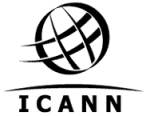 Policies mandating DNS filtering undermine the open architecture of the Internet and raise human rights and freedom of expression concerns
Policies mandating DNS filtering undermine the open architecture of the Internet and raise human rights and freedom of expression concerns
[Washington, D.C. and Geneva, Switzerland – 12 December 2011] – The Internet Society Board of Trustees has expressed concern with a number of U.S. legislative proposals that would mandate DNS blocking and filtering by ISPs to protect the interests of copyright holders. While the Internet Society agrees that combating illicit online activity is an important public policy objective, these critical issues must be addressed in ways that do not undermine the viability of the Internet as a platform for innovation across all industries by compromising its global architecture. The Internet Society Board of Trustees does not believe that the Protect-IP Act (PIPA) and Stop Online Piracy Act (SOPA) are consistent with these basic principles.
Continue reading




 President and CEO of the Internet Society, Lynn St Amour, will join a panel of distinguished speakers in the Royal Society of London, UK, to discuss the naming system which is critical to modern Internet operations.
President and CEO of the Internet Society, Lynn St Amour, will join a panel of distinguished speakers in the Royal Society of London, UK, to discuss the naming system which is critical to modern Internet operations.